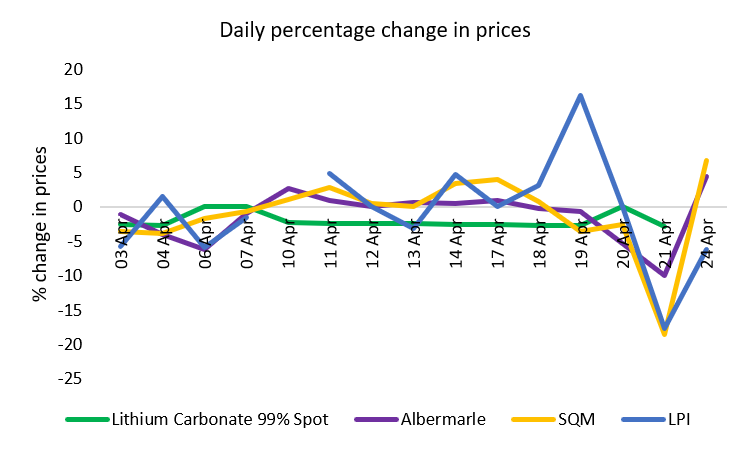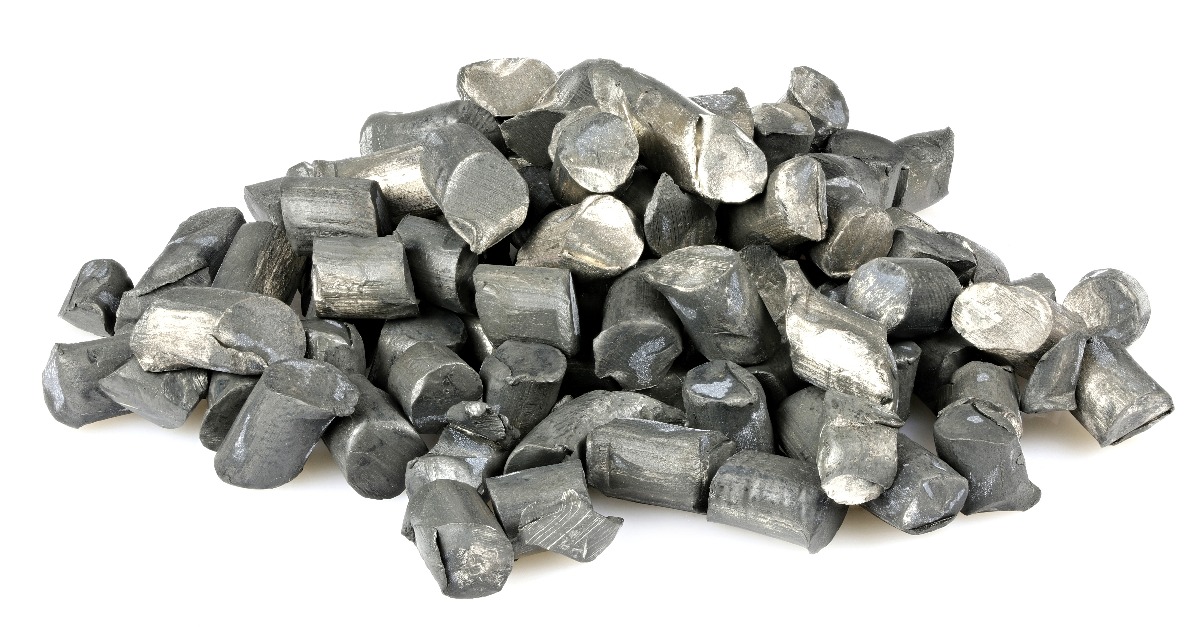Last week, President Gabriel Boric of Chile announced the launch of the country’s new national lithium strategy to usher in the age of electrification and decarbonization, ensure environmental sustainability and ultimately, cement its position as the global leader in the production of silvery-white metal.
Primarily, the policy seeks to nationalize Chilean reserves and manage this process via a new state-owned entity.
Presently, Chile is a massive player in the lithium market, accounting for approximately 30% of the global supply and holds the world’s third largest reserves.

The previous year was highly profitable for the state authorities which saw lithium carbonate exports jump 777% over 12 months to reach nearly $8 billion.
Yet, it continues to lag Australian production by a significant margin.
Although some claim this shift in commodity control was highly unexpected, this may not be quite so, given the government’s optimistic forecasts for lithium demand, the strict controls in Chile’s pre-existing regime and Mexico’s decision to nationalize its lithium mines last year.
Zimbabwe too had banned lithium exports just before the turn of the new year, while other countries have been placing varying restrictions on other battery metals.
It is due to the widespread concerns of nationalization, geopolitical frictions, and supply chain vulnerabilities, that automakers such as GM have invested heavily in mining operations to secure independent supplies.
Interested readers can check out this earlier piece for Invezz which discusses changing dynamics in the lithium sector.
National lithium strategy
To unlock new avenues of wealth creation while riding the wave of the coming green energy transition, the key pillars of the government’s stated policy include the following:
- To create a 100% state-owned National Lithium Company to boost production, and target the mineral-rich Atacama Desert region and other salt flats.
- This would facilitate the involvement of the government throughout the entire industrial cycle to not only ramp up extraction volumes but also pave the way for value addition via new downstream products.
- The development of PPP relationships while undertaking environmental stewardship and protecting the rights of local communities.
- To guarantee an adequate modernization of the institutional framework and maintain fiscal sustainability of the industry.
- To develop technologies to minimize environmental impacts such as direct lithium extraction (DLE) over the widely used and resource-intensive evaporation ponds.
- To design a tax reform that uses lithium proceeds to finance permanent and fiscally responsible expenditures to build new schools, hospitals, police stations, bridges, and roads.
- Establishment of a Technological and Public Research Institute of Lithium and Salt Flats.
The government is expected to table the strategy in front of congressional members in H2 2023, during which time it would require a majority vote to pass.
Although current lithium contracts will not be suspended, President Boric did express the hope that private companies would be open to state participation, while any future contracts would be issued under a state-controlled PPP model.
For the time being, the Chilean state company Codelco, the largest producer of copper in the world and the state miner Enami will manage exploration and extraction contracts.
Corporate reactions and equities recover
The two largest lithium companies in the world both operate in Chile with each supplying global battery makers and automakers.
The biggest is the Charlotte, NC-based Albemarle Corporation (NYSE: ALB) followed by the Chilean chemical giant Soquimich (NYSE: SQM) with current contracts that are set to expire in 2043 and 2030, respectively.
According to a report by Fox News, in 2022, SQM and Albemarle generated government revenues of above $5 billion and $600 million, respectively.
While SQM issued a statement suggesting that the company was analyzing the strategy delivered by the government, Albemarle was relatively optimistic stating there would be,
…no material impact on our business.
In its initial response to the new strategy, Australia-based Lithium Power International’s (ASX: LPI) subsidiary Minera Salar Blanco praised Chile’s new approach,
…confirming legal certainty and ratifying a clear institutional framework for a rapid growth of investment in the industry…
Steve Cochrane, President & CEO of Lithium Chile (TSX-V: LITH) also added,
It is our opinion that removing the uncertainty around developing Chile’s lithium assets will create a lot of global interest
Despite reassurances from Albermarle and other analysts, uncertainty hung heavy in the air, with the possibility that long-term investments may be impacted until there is clarity on the share of the public sector in new licenses and the degree of flexibility that remains with private companies.

Albermarle gave up 10% of its share price on Friday, declining to a 52-week low of $171.82 at the close, while volumes for the session were up 4.1 times due to heavy selling compared to the average for the rest of April 2023.
With market participants having the weekend to digest these developments, the share is up 4.5% during the Monday morning session.
SQM faced a much sharper drop closing at $63.44 on Friday, plummeting 18.6%, with trade volumes spiking 9.95 times compared to the average over the rest of the month.
At the time of writing, the share price is higher between 6.7% following improved investor confidence.
However, the ASX-traded LPI’s price fell 17.7% on Friday and 6.2% lower at the time of writing.
Despite the Chilean announcement, spot prices fell 2.8% in China on Friday, which was likely fuelled by the sharp ongoing decline due to weak demand factors and over-production.
Regional dynamics
Together, Bolivia, Argentina and Chile are known as the ‘Lithium Triangle’ and have reserves of 21 million tons, 19.3 million tons and 9.6 million tons, respectively.
Along with Brazil, these three countries are striving to develop a lithium partnership in the style of OPEC, which would not only drive mine development but add technology-intensive, high-end processing capacity to supply the battery storage and EV industries.
Although Brazil’s lithium resources are relatively scarce, the country boasts significant experience in auto manufacturing as well as sustainability with a strong history of ethanol development.
Much like Chile is attempting to now, Bolivia nationalized its lithium reserves in 2008, and the emerging bloc may see support from Mexico which also nationalized its reserves last year.
However, long-term sustainable cooperation will continue to have its challenges with Patricia I. Vásquez, Global Fellow at the Wilson Center noting that Chile views lithium as a strategic resource that should be tightly controlled by a governmental permit system.
On the other hand, in Argentina, mining comes under a surprisingly market-friendly scheme which offers tax incentives and low royalties to encourage international interest.
Unclear impacts
Overall, the decision of the Chilean government to nationalize resources poses challenges for the already reeling EV sector.
Outside of Chile, which is globally respected for its high institutional standards and financial safeguards, other countries may also be tempted to nationalize reserves, which may negatively impact investor sentiment.
As a result, until there is greater clarity around the future of Chile’s contract structure, Latin America may risk lower investor flows into lithium projects.
However, the Boric government has so far not seen eye-to-eye with congressional leaders on key matters which may delay the full-fledge passage of nationalization plans.
The strong rebound this morning suggests that investors are confident that lithium companies will not be affected by the new strategy, at least in the near term.
The post Lithium stocks rebound strongly as fears around Chile’s nationalization strategy recede appeared first on Invezz.

